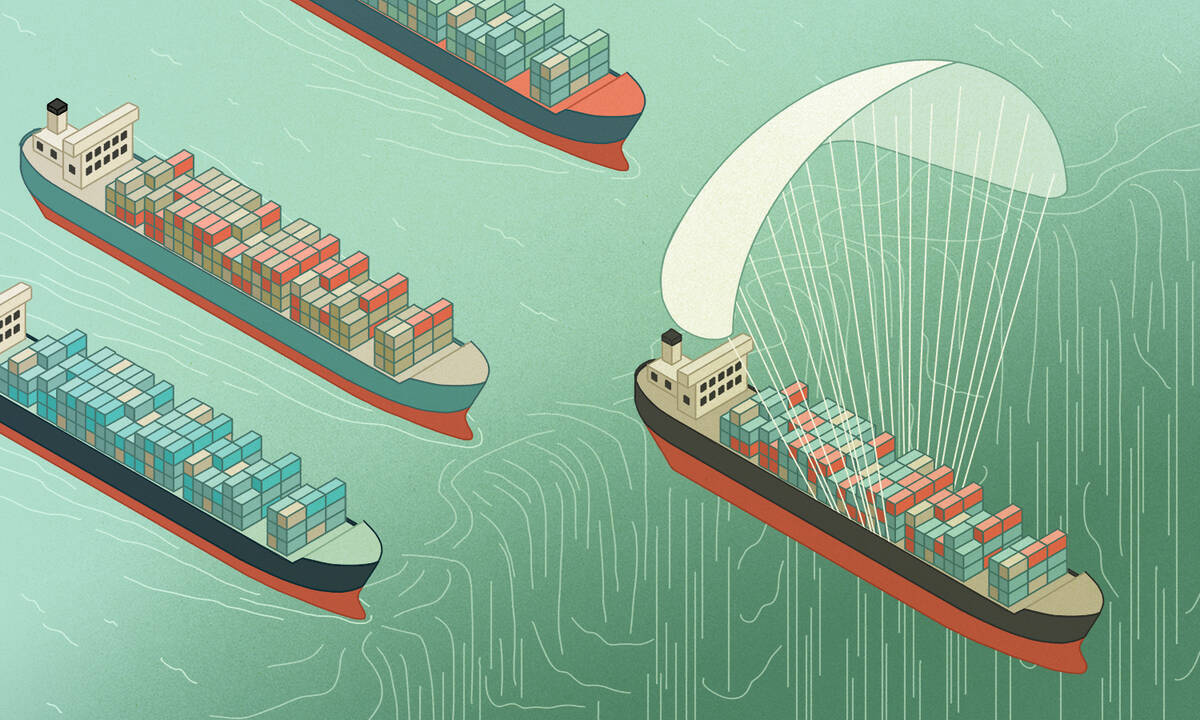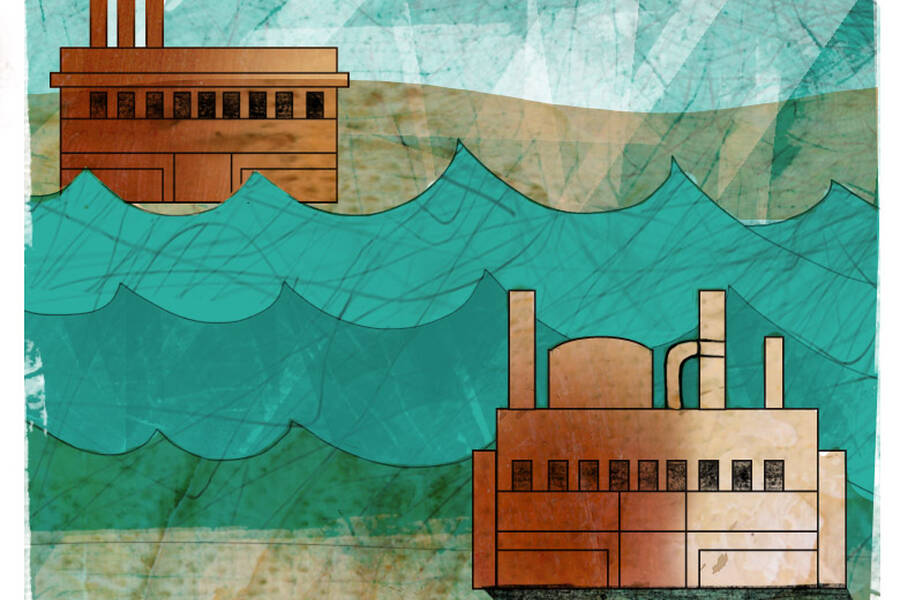Strategy Apr 1, 2019
For Companies Worried About a Trade War, the Time to Act Is Now
A lot of companies are “holding tight and hoping it all just goes away.” Don’t be one of them.

Michael Meier
In the last two years, the United States has upended its trade policy.
It has imposed steel and aluminum tariffs on foreign companies, levied tariffs on $250 billion worth of Chinese imports, pulled out of the Trans-Pacific Partnership (TPP), and renegotiated the North American Free Trade Agreement (NAFTA). For their part, the European Union, China, Japan, Mexico, and Canada have all responded with retaliatory tariffs on U.S. exports.
This recent volatility has hurt many U.S.-based companies and customers, as the goods people buy get more expensive and the products businesses sell are hit with retaliatory tariffs, says Phil Levy, an adjunct professor of strategy at Kellogg and senior fellow on the global economy at the Chicago Council on Global Affairs.
A few companies are already mounting a response. Iconic motorcycle manufacturer Harley-Davidson recently announced plans to move more of its production overseas, while Ford is preparing to lay off thousands of workers in Europe as part of a global reorganization.
But many companies appear content to try to wait it out. After all, “this is something new,” says Levy. “Despite having a lot of trade debate in the past, U.S. trade policy hasn’t been terribly volatile.”
So what should companies do? Levy stresses the danger of doing nothing at all. Here are some of his tips on how to keep calm and carry on during a trade war.
Tilt the playing field in your favor
Companies dealing with the uncertainties of a trade war should encourage both politicians and the public to take their side.
To make their case to politicians, these companies might testify in public hearings on trade or join lobbying actions by organizations such as the U.S. Chamber of Commerce or the Business Roundtable. Groups such as these have become more vocal as the recently installed Congress introduced bills that would place congressional approval and oversight on the administration’s tariff powers.
“The U.S. Constitution gives Congress power over trade policy and, over the years, they’ve delegated a lot of it to the Executive Branch,” Levy says. “Now they wish to reclaim it.”
Companies should also focus on educating the public on the impact of the administration’s trade policies. “Your average voter doesn’t have a clear conception of how supply chains work and how an interruption in trade doesn’t mean that everything will be made in the United States,” Levy says. “It may mean, instead, that your employer becomes uncompetitive.”
Pay Attention
But with trade policy actively in flux, relying on lobbying efforts or education campaigns may not be sufficient.
Companies need to track how different policy shifts could affect their supply chains, Levy says. “There’s no obvious answer as to whether these uncertainties are here for a month or a year. Companies will want to make as informed a bet as they can, so that means paying close attention.”
And they should attend to all changes, no matter how minor they may seem. Just the slightest shift can have global repercussions, Levy says, pointing to the administration’s relatively modest revision of NAFTA, now called the U.S.-Mexico-Canada Agreement (USMCA).
“The trick is that to get there, the administration has called the status quo into question,” Levy says. “It’s still not clear how [the USMCA] is going to get through Congress.” Indeed, the administration has threatened to leave NAFTA in order to put pressure on Congress to accept the new deal.
“For businesses, it raises the specter of seeing really substantial Mexican tariffs imposed on the U.S.,” says Levy. “Even if the modifications are relatively small, the things they’re calling into question are not.”
And even the specter of significant tariffs should give companies pause. Look at how the auto industry is integrated across North America, Levy says. Many automakers produce parts and work with skilled labor in Canada, then send everything down to Mexico for assembly. It’s the reason you see partially assembled automobiles cross borders multiple times, Levy says.
“That has been a key to their competitiveness,” he says of the auto industry. “If, suddenly, you had to pay substantial tariffs each time those [autos] go back and forth, it would figuratively throw a wrench in the works.”
Use Trade Policies to Your Advantage
One way some companies can counter these issues altogether is to take advantage of the administration’s tendency to target specific countries for tariffs.
Take, for example, China. The administration has already levied a 25 percent tariff on $50 billion worth of Chinese goods and is threatening additional tariffs in the future. Some Chinese companies have gotten around that by moving production to countries that are not subject to these tariffs, such as Vietnam or Ski Lanka.
“The U.S. Constitution gives Congress power over trade policy and, over the years, they’ve delegated a lot of it to the Executive Branch. Now they wish to reclaim it.”
Levy suggests taking a similar approach by using a little-known fact about U.S. trade policies with China. “We still have a trading system where the tariffs all depend on where the final transformation takes place,” he says. “Let’s say you do 90 percent of the work in China, but you do the final stage in Vietnam that transforms the good. Then that counts as a Vietnamese good, and it’s not subject to the tariffs.”
Companies could also switch all production to a non-tariff country; Warren Buffett’s Brooks running shoes are planning such a move to Vietnam. Again, both options are expensive and could be needless if China and the U.S. agree to a deal. But Levy wants companies to think of this move in a different way.
“It’s the equivalent of buying insurance,” he says. “If the thing you’re insuring against doesn’t come to pass, you’ll have spent money and gotten nothing out of it. If the event comes to pass, in this case an elevated trade war, the move will pay off.”
Act Now
Businesses have gotten accustomed to worrying about uncertainty when it comes to things like customer preferences and demand. Until recently, they have not been treating policy volatility on par with those other uncertainties. And now they need to.
“That’s not a quick and painless thing to do,” Levy says. “It requires a bunch of investigations. It requires investment. A lot of companies are grappling with whether it’s worth doing that, or holding tight and hoping it all just goes away.”
What is clear to Levy about the current global trade instability is that U.S. companies cannot afford to wait it out without acting. Companies will have to be prepared to make a move—either raise prices to offset the potential added costs and losses, or change supply chains to keep their original cost levels.
And whatever choices companies make, they should make them quickly, Levy says. The more unpredictable and protectionist the administration’s deals get, the more willing the rest of world might be to exclude the U.S. from policy-making processes.
“The rest of the world has gone on striking deals,” he says. “We’ve seen EU deals with Japan, with Canada. It’s had discussions with Brazil. The implication here is that when you’re looking at global competitors, North American industries are being threatened in a way that European and Japanese industries are not.”



